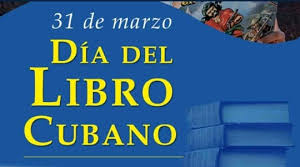
By María Josefina Arce
March 31st is Cuban Book Day, instituted in homage to the creation on that day in 1959 of the National Printing House, an event that paved the way for a change in the country's cultural policy, which by the hand of the nascent revolution began to reach everyone, without exclusions.
But this transformation should be accompanied by another one for a nation that, when the revolution triumphed, had an illiteracy rate of more than 50%.
The Literacy Campaign was a feat, promoted by the historic leader of the Cuban revolution, Fidel Castro. Thousands of young people from all over the country mobilized in 1961 to bring knowledge to the most remote places of the national geography.
And it was precisely in the National Printing House where the primers, pamphlets and manuals used to teach reading and writing to more than 700 thousand people were published.
From that moment on, books would reach everyone. A different world opened up for Cubans and the possibility of expanding their knowledge and learning about the life of other peoples through reading.
At Fidel's suggestion, "El ingenioso hidalgo Don Quijote de la Mancha", by Miguel de Cervantes Saavedra, a jewel of universal literature, would be the first title published by the National Printing House, which would be followed by many more by renowned writers of Cuba and the world.
And that policy of bringing the people closer to reading, an indisputable source of learning and enjoyment, has been a constant throughout more than six decades.
Since the revolutionary triumph in January, the authorities have strengthened the libraries already existing in the national territory and many more have been created in communities, schools and universities.
Another valuable opportunity to encourage the taste for reading is the Havana International Book Fair, which has been held since 1982 and which, after concluding its stage in the capital, travels throughout the nation, because bringing culture to all corners is a maxim of the revolution, even in the midst of the shortages imposed by the U.S. blockade.
That effort also includes another festival of literature, the University Festival of Books and Reading, which has been held since 2007 in all centers of higher education in the archipelago.
Sixty-five years have passed since the creation of the National Printing House of Cuba and millions of books have been published in order to open people's horizons, contribute to increase their knowledge and offer an alternative of healthy recreation.

